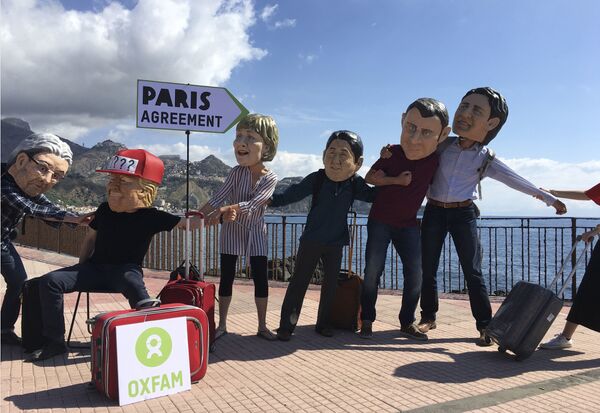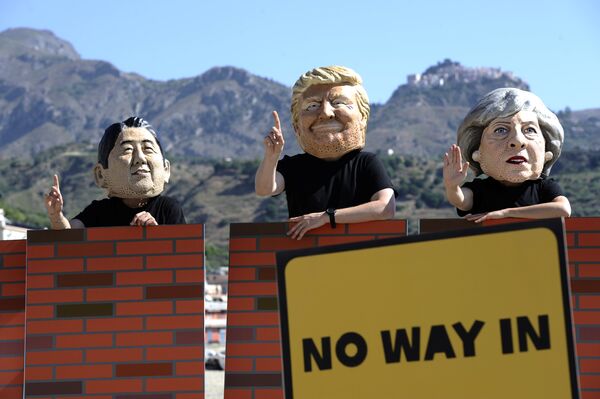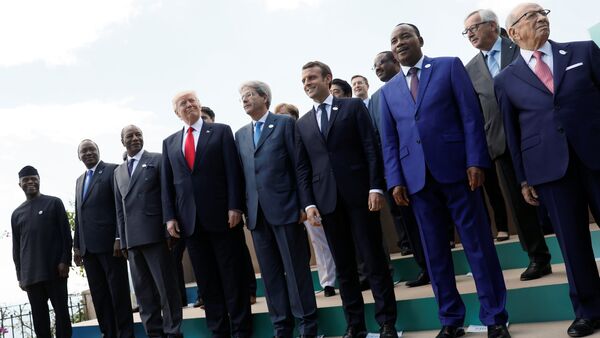At the end of the meeting, the leaders released a communique, which reiterated several policies, such as support for free trade and nuclear non-proliferation, but contained few new initiatives.
ONE, a campaigning and advocacy organization which aims to end extreme poverty and preventable disease, called the conclusion of the G7 "a new low."
"In a year of greatly-diminished expectations, the G7 have managed to set a new low. The early promise of this summit was crushed by the Trump Administration’s hostile negotiating posture and the evident lack of ambition of other leaders," Friederike Roeder, director at ONE, stated.
"The G7 would be wise not to sell their final statement as a success just because of the last-minute agreement checking the box with words such as 'famine,' 'gender' or 'sustainable development.' Only real investments can save lives and safeguard our common future, not words."
In an effort to stem the flow of migrants and refugees across the Mediterranean, the G7 had invited the leaders of several African countries to the meeting.
"Perhaps the choice (to be in) Taormina and Sicily says much about how important our relations are with Africa," Italian Prime Minister Paolo Gentiloni said in his introductory address.
However, the presence of the leaders of Ethiopia, Guinea, Kenya, Niger, Nigeria and Tunisia turned out to have little impact on the G7.
PRESIDENT @UKenyatta makes historic address to G7; says a freer, more prosperous Africa key to solving global problems. #G7Summit pic.twitter.com/8olSrBqOPi
— Breaking News KE! (@BreakingNewsKE) May 27, 2017
Niger's President Mahamadou Issoufou called on the G7 to take more measures to resolve the Libyan crisis and to fulfil their promises of aid to tackle poverty.
"Be it Niger, a transit nation, or the countries of origin, it is only through development that we will prevent illegal migration," Issoufou said.
Niger is a landlocked country in Western Africa. Its city, Agadez, is a popular waystation for migrants attempting to cross the Sahara Desert to reach Libya and eventually Europe via Italy.
The Central Mediterranean migratory route is currently the most popular migrant route to Europe, and more than 37,000 migrants arrived on the coast of Italy between January and April this year.
Italy had hoped to persuade other G7 members to implement a legal migration plan so that migrants avoid the treacherous route across the Mediterranean Sea. However, the G7 failed to develop any real solution.

"This is the scandal of this summit: That G7 leaders could come right here in Sicily on the doorstep of the sea where 1,400 people have drowned this year alone and fly home tonight without doing anything serious about it," Edmund Cairns, Oxfam's policy adviser on humanitarian crises, responded.
In a public protest, activists from Oxfam donned masks depicting the G7 world leaders and erected a mock brick wall to complain against their migration policy.

Following the end of the summit on Saturday, around 1,500 anti-globalization protestors attended a march in the seaside town. One group of protestors scuffled with security forces after they attempted to break through a police cordon.



